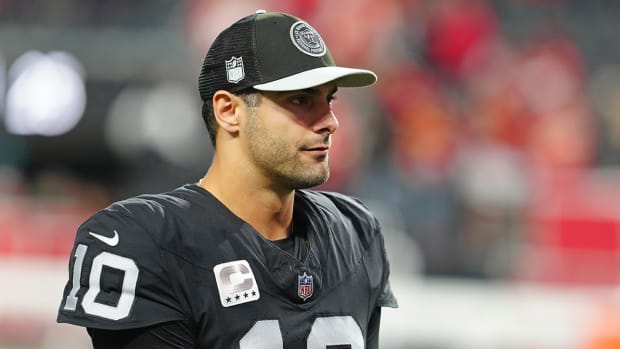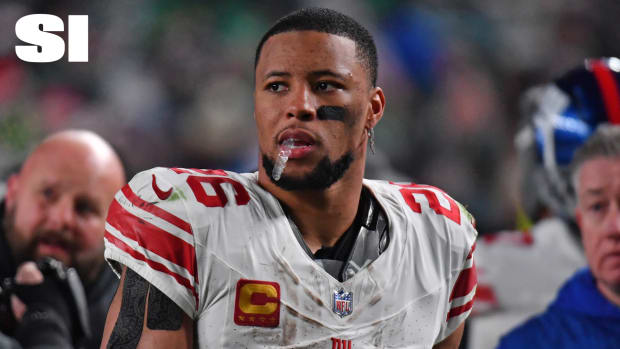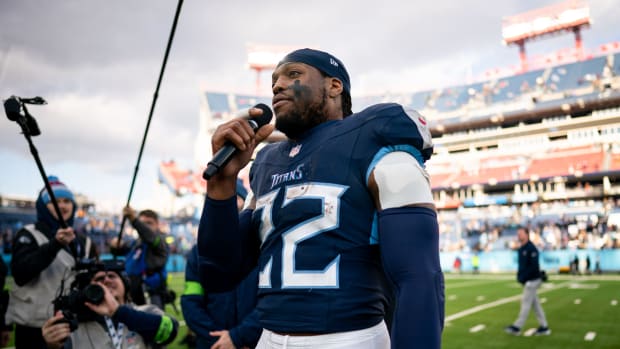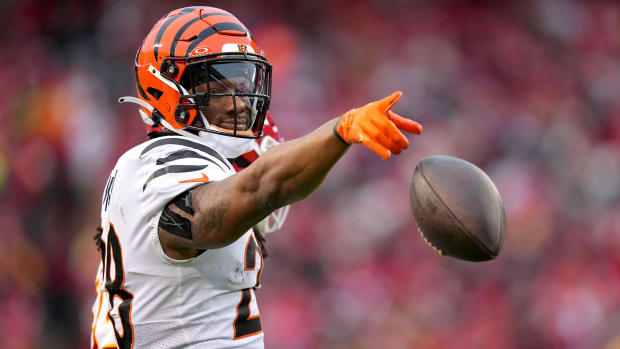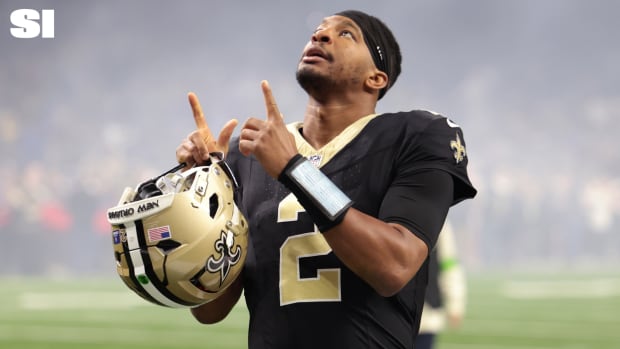Bruce Lee's Story Is Still Relevant Today
Be Water, chronicling the life and legacy of martial arts legend Bruce Lee, is ESPN's latest 30 for 30. Before the film's premiere on Sunday June 7th at 9pm ET, I got a chance to speak with its director, Bao Nguyen. We discussed his process for profiling such a legendary figure, what Lee may have thought of modern MMA, and why Bruce Lee's story is particularly relevant and poignant in light of current events today.
Video Transcript:
Robin Lundberg: Be Water, ESPN's latest 30 for 30 on Bruce Lee's life and legacy airs Sunday, June 7th at 9:00 p.m. Eastern. I'm joined now by the film's director, Bao Nguyen. Now, Bao, Bruce Lee is obviously an iconic figure. How did you determine how to tell his story most effectively?
Bao Nguyen: Well, for me, I'm never trying to tell the definitive story about any subject. I think it's impossible to tell the full whole story of anyone in, you know, 90 minutes to two hours. So there was a very specific narrative that I was trying to emphasize, which is the narrative of Bruce being an immigrant American, as being the other, as the Asian American. I think for the most part, a lot of past retellings of his story have really looked at the legacy, the impact, the mythology of Bruce Lee and also him more as a martial artist, more as a film icon. And I wanted to take it from kind of a personal perspective, because as a filmmaker, I find that when you have some kind of personal connection to the story, it's a little more honest, a little more authentic. And my parents are, you know, Vietnamese war refugees. They left Vietnam on a boat, lived in a refugee camp in Hong Kong for six months. And then they came over to America with really nothing in their pocket, which is the same story of Bruce Lee, that a lot of people don't know about. He left Hong Kong at the age of 18, landed in San Francisco and then resided in Seattle, where he became, he started to become the icon we know today. So I wanted to make it more kind of a coming of age of Bruce Lee, but also intertwine what it means to be Asian, Asian-American. And looking at even the racial history of America before Bruce Lee arrived.
Robin Lundberg: How poignant do you think that narrative is in current times? Obviously, race relations are in the news. The tragic killing of George Floyd, immigration policies in this country, you know, racial backlash against Asian-Americans from the coronavirus. How poignant do you think that is right now?
Bao Nguyen: Well, I mean, it's sad that it's still timely that the conversation that was being had in the 1960s, which was one of the most tumultuous times in American history, is resurfacing in 2020. And I hope that we as a country, as a society, can learn a lot of lessons from then, from back then. And I think Bruce and his story definitely is relevant because in many ways he faced a lot of discrimination. And he also tried his best to be an ally of his African-American friends, of his African-American students like Kareem Abdul Jabbar, who taught him about the civil rights movement, about black liberation. And also his first student ever in America, Jesse Glover in Seattle, was a victim of police brutality, and that was a reason Jesse wanted to learn martial arts and self-defense. And I think all these different interactions that Bruce had with people from all different races, all different nationalities, informed what he thought of America and the America that he he wanted to live in, which was multicultural, diverse, one where you fight for and fight against injustice and then you fight for the underdog. And I think a lot of Bruce's philosophies and message can be relevant and hopefully inspirational to many today.
Robin Lundberg: I totally agree. And he says in the trailer for the film, he just wanted to be accepted as a human being. And there's a lot of people who feel that way today. Now, you did mention he was known for his martial arts prowess. And today there is mixed martial arts and the UFC. How do you think he would have viewed those endeavors and sports? And is that something you think he would have wanted to participate in?
Bao Nguyen: I think, you know, people often say Bruce Lee is kind of the father, the godfather of mixed martial arts, because, you know, his philosophy, his fighting style. Jeet Kune Do was a mixture of all the things that he absorbed as a martial artist, as a student of martial arts growing up. And so he didn't believe in systems. He didn't believe in rigidity and tradition. And he kind of made it his own. And that's kind of what mixed martial arts is all about. I think it's interesting, too, that he he used his sport, Kung Fu, to connect other people, used it as a way to figure out who he wanted to be in America, that he wasn't going to hide part of himself to become American. But he was going to add to America by teaching people Kung Fu, which is very much part of American culture today. If you go to any strip mall in America, you'll see like a martial arts dojo or studio.
Robin Lundberg: Now, he was in the news recently. You know, you also chronicle his journey to Hollywood. And the portrayal, though it was a caricature, in Once Upon a Time in Hollywood, I know was not received well by those close to him. What's the reaction to that as a little time has passed?
Bao Nguyen: I mean, as time has passed, I think there's going to be different narratives of Bruce Lee that are a little more authentic. And I hope our film Be Water adds to that narrative. It's a more whole humanistic version of who Bruce was as a person and less of a fictionalized, you know, heightened version, as in Once Upon a Time in Hollywood.
Robin Lundberg: And as you said before, it sounds like it is coming at a time where somehow so far after his story was told in real time, it feels very relevant yet again. Be Water, ESPN's latest 30 for 30 on Bruce Lee's life and legacy airs Sunday, June 7th, at 9:00 p.m. Eastern. Bao Nguyen, I really appreciate your time.
Bao Nguyen: Great. Thank you so much.
